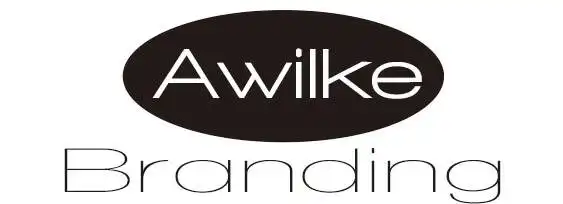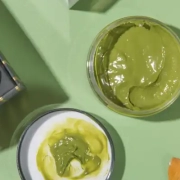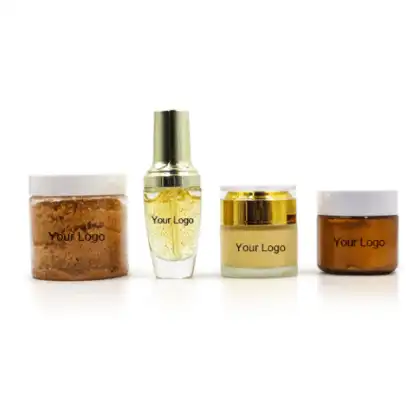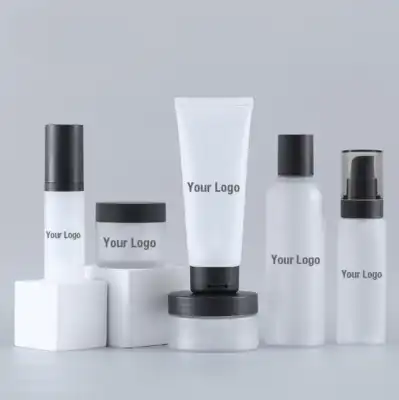5 Reasons Why You Should Start Your Men’s Care Product Line With Private Labeling
Ever wondered how successful men’s care brands seem to effortlessly navigate the competitive grooming landscape, offering high-quality products while maintaining a healthy profit margin?
The answer might lie in a strategic approach – private labeling.
Let’s delve into the world of private labeling and unveil the secrets that could revolutionize your journey in the men’s care industry.
Key Takeaways✔️ Private labeling makes more money by using resources wisely, taking advantage of bulk production savings, and setting competitive prices. ✔️ Private labeling saves money by making products efficiently, cutting research costs, customizing without high expenses, and smartly allocating resources. ✔️ Private labeling builds customer loyalty by tailoring products to the target audience. ✔️ Private labeling brings stability to the market by sticking to proven formulations and ensuring customer satisfaction. ✔️ Private labeling speeds up product launches by using existing formulations and simplifying development |
What are Private Label?
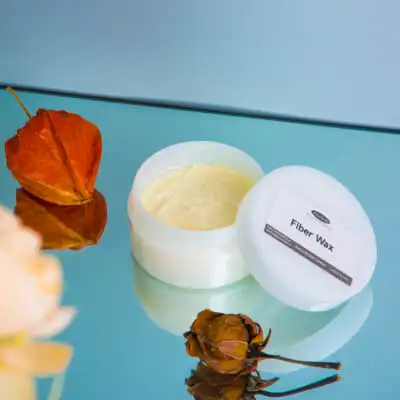
Private labeling involves partnering with a trusted private label manufacturer to create products under your brand name. Essentially, you choose from existing formulations, add your branding, and bring the products to market without the complexities of in-house production.
Why should you start your men’s care product line with private labeling?
Here are the reasons:
1. Private Labeling Brings Higher Profit Margin
One of the primary attractions of private labeling is the potential for a higher profit margin. Since you’re leveraging pre-existing formulations, you can significantly reduce upfront development costs. This allows you to allocate more resources to marketing, distribution, and building brand awareness, ultimately enhancing your bottom line.
So how does a private label provide you with higher profit margins? It’s simple. Here are three ways:
Efficient Resource Allocation
Private labeling allows you to channel your resources effectively. By leveraging existing formulations, you eliminate the need for extensive research and development, reducing upfront costs. The saved resources can then be redirected toward strategic areas such as marketing, distribution, and brand building, contributing to a higher profit margin.
Economies of Scale
Investopedia defines Economies of Scale as the cost advantages you can reap when your production becomes efficient. Higher production quantities typically result in lower per-unit production costs. Private labeling often involves bulk production, leading to economies of scale. As your product line grows, the cost per unit decreases, enhancing your profit margin over time.
Competitive Pricing Strategies
Investopedia defines competitive pricing as “the process of selecting strategic price points to best take advantage of a product or service market relative to competition.”
With reduced development and production costs, private labeling enables you to adopt competitive pricing strategies. For instance, you could implement the “Loss Leader” strategy.” This strategy works by setting your prices lower than your initial production costs in order to drive traffic into your business space and lead customers toward more expensive and higher-quality products.
2. Private Labeling Allows Lower Initial Investment
Launching your men’s care product line with private labeling comes with a significant advantage: a lower initial investment. Here’s why this matters and how it can positively impact your business:
Cost-Efficient Production
Private labeling involves partnering with a manufacturer who already has established formulations and production processes. This eliminates the need for you to invest heavily in setting up your own production facilities. As a result, you save on the costs associated with building and maintaining a production infrastructure.
Reduced Research and Development Expenses
Creating skincare products from scratch involves extensive research and development (R&D). Private labeling allows you to skip this resource-intensive phase since you’ll be leveraging existing formulations. This reduction in R&D expenses contributes to a lower overall initial investment, freeing up funds for other critical aspects of your business.
Customization Without High Costs
Despite the lower initial investment, private labeling still offers the flexibility to customize products to align with your brand. You can add your unique branding, choose specific formulations, and even tailor packaging to meet your brand’s identity—all without the high upfront costs typically associated with in-house product development.
Strategic Resource Allocation
By minimizing your initial investment in production infrastructure, you can strategically allocate resources to areas that directly impact your brand’s success. Whether it’s focused marketing campaigns, building a robust distribution network, or investing in customer engagement, a lower initial investment allows for more targeted resource allocation.
Now that we’ve established that private labeling may result in lower initial investment costs, here are some low-cost men’s care products you can opt to launch your brand with:
After Shave Products

Launching your men’s care product line with aftershave products is a strategic choice. These products are designed to soothe and hydrate the skin after shaving, reducing irritation and promoting quick recovery. Consider formulating aftershave balms with customizable scents and specific properties for different skin types, providing a diverse range for your customers.
Hair Pomades
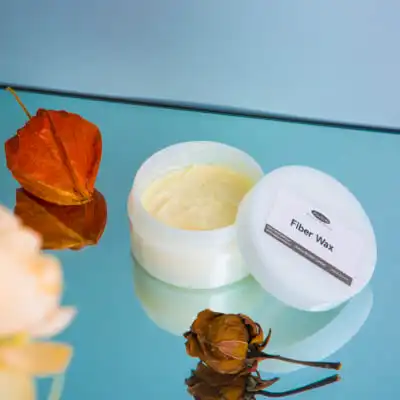
Hair pomades offer versatility for styling and maintaining various hair types. As low-cost products, they can be an excellent addition to your brand. Consider developing pomades with different holds and finishes to cater to diverse customer preferences. You can also enrich them with nourishing ingredients to provide additional hair care benefits.
Eye Care Creams

Targeting the specific needs of the eye area can be a niche market for your men’s care line. Develop eye care creams that address concerns such as puffiness, dark circles, and fine lines. Custom formulations for different skin types and concerns, including moisturizing options for dry skin, can enhance your product range.
Beard Kits
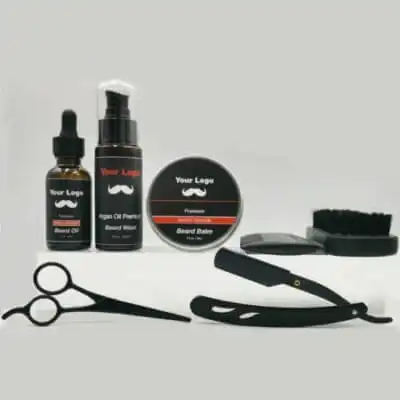
Beard grooming is a growing trend, and offering comprehensive beard kits can be a lucrative choice. Create kits that include essential products like beard oils, balms, and grooming tools. Ensure customization options, such as scents and formulations tailored for different beard types, to meet the diverse preferences of your customers.
Men’s Skincare for Dry Skin

Focusing on skincare for dry skin allows you to tap into a specific market need. Develop a specialized line that includes moisturizers, cleansers, and targeted treatments. Customizable formulations can address various dry skin issues, providing effective solutions for your customers. This targeted approach can set your brand apart in the competitive men’s care industry.
3. Private Labeling Builds Better Brand Loyalty
Private labeling provides the flexibility to tailor products to your target audience’s specific needs and preferences. This customization fosters better brand loyalty, as customers appreciate products that cater to their unique requirements. By curating a product line that resonates with your audience, you enhance customer satisfaction and build a loyal customer base.
The Benefits of Brand Loyalty
Brand Loyalty Establishes a Stable Consumer Base
Male consumers who exhibit loyalty to a men’s care brand provide the foundation for a stable and consistent customer base. This stability is invaluable in a market where trends can be dynamic, as it ensures a reliable stream of sales and a continuous presence in the competitive landscape. Brands can count on the loyalty of their male customer base to weather market fluctuations and maintain a strong market position.
Brand Loyalty Encourages Word-of-Mouth
Loyal male customers often become powerful brand advocates. Their positive experiences and satisfaction with the brand can lead them to recommend products to their peers, friends, and family. Word-of-mouth promotion is particularly influential in the men’s care industry, where trust and reliability are paramount. When men share their positive experiences with a brand, it not only reinforces the brand’s credibility but also extends its reach organically, tapping into new potential customers through authentic recommendations.
Brand Loyalty May Increase Your Profits
According to a report by Harvard Business Review (HBR), brand loyalty can increase revenues 2.5 times faster the industry peers. Solid brand loyalty serves as the cornerstone for the success and longevity of a men’s care product business. This loyalty extends beyond acquiring one-time customers, forming the basis for enduring relationships with consumers who consistently choose and trust your products.
4. Private Labeling Brings Greater Market Stability

In the competitive landscape of men’s care, private labeling offers a level of market stability. By aligning your brand with proven formulations, you reduce the risk associated with developing entirely new products. This stability is especially crucial in the ever-evolving men’s care market, allowing you to navigate trends with a foundation of established, reliable products.
What is Market Stability and What are Its Benefits?
Market stability refers to the ability of a business to maintain a consistent and predictable position in the market over time. In the context of the men’s care industry, where trends and consumer preferences can shift rapidly, market stability is crucial for sustaining growth and relevance.
Here is why market stability is important for a men’s care products provider:
Market Stability Improves Business Longevity
Market stability plays a pivotal role in ensuring the longevity of brands. Men tend to develop grooming routines and brand preferences that align with their specific needs and preferences. When the market remains stable, men are more likely to stick to their established grooming habits, contributing to the sustained success of men’s care brands.
Market Stability Simplifies Adaptation to Trends
Men’s grooming habits can be influenced by evolving trends, and market stability simplifies the process of managing and adapting to these shifts. Brands that maintain stability can better understand and respond to changing preferences among male consumers.
Market Stability Improves Growth Amidst Competition
Market stability provides a conducive environment for sustained growth, allowing brands to focus on innovation, quality, and customer satisfaction. Men who experience stability in the products they use are more likely to remain loyal to a brand that consistently delivers results.
How Private Labeling Provides Greater Market Stability
Established Formulations with Proven Success
Private labeling allows you to choose from formulations that already have a track record of success in the market. By aligning your brand with proven formulations, you reduce the risks and uncertainties associated with introducing entirely new products.
Consistent Consumer Satisfaction
Opting for private label formulations means you are offering products that have consistently satisfied consumers. This builds trust and loyalty among your customer base, contributing to a stable and loyal clientele.
Mitigation of New Product Risks
Introducing entirely new products carries inherent risks, from formulation challenges to uncertain market reception. Private labeling minimizes these risks by providing formulations that have already proven their acceptance and success.
Flexibility to Adapt to Trends
Private label products offer the flexibility to incorporate trending ingredients or features into your product line swiftly. This adaptability ensures that your brand stays current with evolving consumer preferences, contributing to sustained market stability.
5. Private Labeling Allows Rapid Time-to-Market
Private labeling accelerates the time-to-market for your men’s care product line. With formulations already in place, you can swiftly move from concept to product launch. This agility is invaluable in responding to emerging trends and consumer demands, ensuring your brand remains relevant and competitive.
Why Time-to-Market Matters
In the dynamic realm of men’s grooming, the speed at which you launch your products is critical for several compelling reasons:
Seizing Market Opportunities
Swift time-to-market allows you to capitalize on emerging trends and market opportunities before they lose relevance. Being among the first to introduce a product puts your brand at the forefront of consumer attention.
Building Brand Reputation
The timely introduction of products helps build a positive brand reputation. Consistently delivering new and innovative items fosters consumer trust and portrays your brand as dynamic and responsive to market needs.
Outpacing Competitors
In a competitive landscape, being the first to offer a particular product or address a specific need gives you a distinct advantage. A quicker time-to-market enables you to outpace competitors and establish your brand as an industry leader.
Maximizing Product Lifecycle
The faster your products hit the market, the longer they have to generate revenue before trends shift or new competitors emerge. Maximizing the product lifecycle contributes to sustained profitability.
How to Start Your Own Men’s Care Product Line Today
Starting your men’s care brand involves a combination of careful planning, market understanding, and effective execution. The following steps can set you on the path to building a successful and sustainable business:
Select the Right Product
Choose the men’s care products that align with your brand vision. Consider a range of items, such as facial cleansers, shaving creams, or hair styling products.
Understand Your Market
Conduct thorough market research to gain insights into your potential customers, competitors, and overall market trends.
Create a Marketing Plan
Develop a comprehensive marketing plan that outlines your brand’s unique value proposition. Consider both online and offline channels to reach your audience effectively. Utilize social media platforms, influencer marketing, and traditional advertising methods.
Find a Reliable Manufacturer
When searching for a trustworthy manufacturer for your men’s care products, consider companies with a proven track record, such as Awilke Branding.
Launch
Plan a strategic and well-executed launch for your men’s care product line. Consider hosting launch events, collaborations, or promotions to generate excitement. Leverage online platforms, including a dedicated website and social media channels, to maximize reach.
If you’re ready to take the first step in launching your private label men’s care brand, don’t hesitate to reach out to Awilke Branding. Our experienced team is dedicated to helping you bring your vision to life. Whether you need assistance with product formulation, packaging design, or overall brand strategy, we’ve got you covered.
Frequently Asked Questions
Can I customize the formulations and branding of private label products?
Yes, private labeling allows customization of formulations, branding, and packaging to align with your brand identity and meet the specific needs of your target audience.
What are the key advantages of private labeling for men’s care products?
Key advantages include higher profit margins, lower operating costs, better brand loyalty, greater market stability, and rapid time-to-market compared to developing products in-house.
What are the typical operating costs associated with starting a men’s care product line?
Operating costs include research and development, production costs, quality control, marketing and promotion, and distribution expenses.
